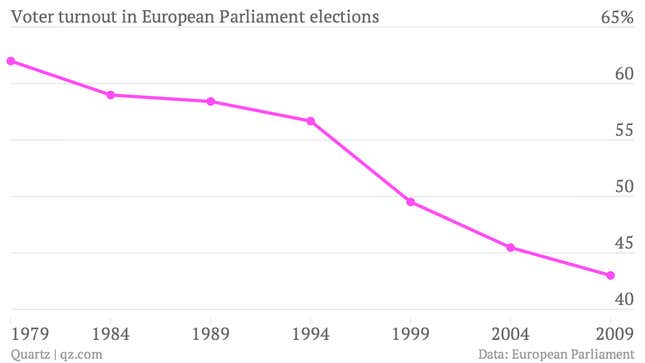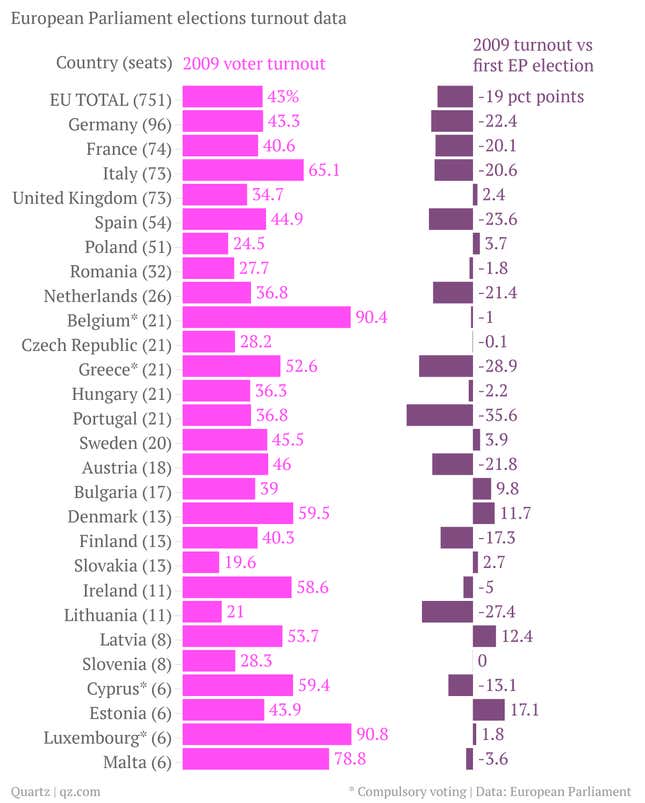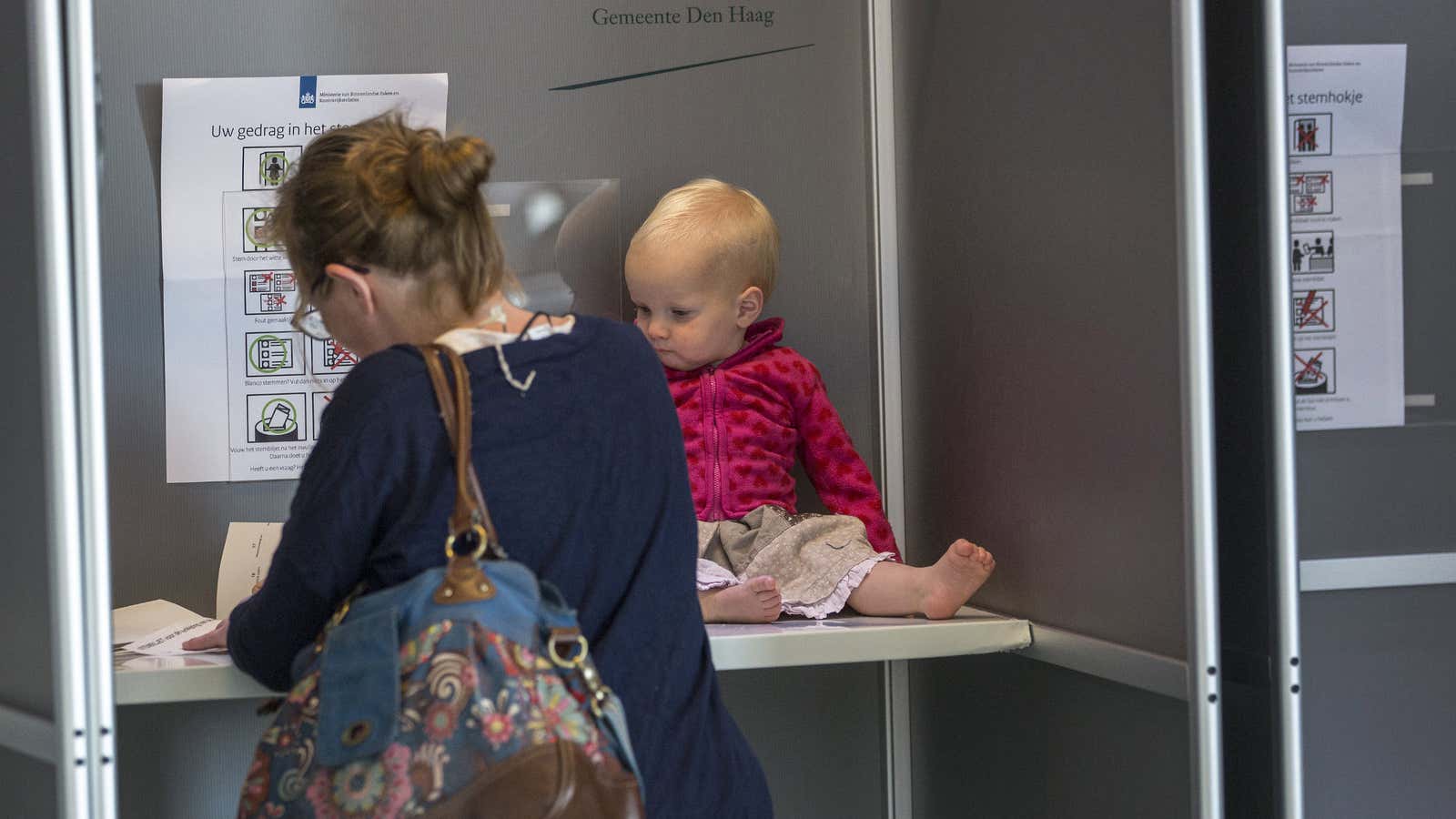Can you sense the excitement? Voting is underway for the European Parliament, with polls in Britain and the Netherlands taking place today. The bulk of the EU votes on Sunday (May 25), so the results for the 751-seat parliament won’t be known until then. Only the Dutch will release exit polls before voting closes in the EU’s 27 other member states.
It is appropriate that the poll begins in the UK and Holland, as the rise of right-wing euroskeptic parties has been a particularly dominant theme of the campaigns there, as it has across much of Europe. British and Dutch voters’ apathy when it comes to the European Parliament is also indicative—only around a third of eligible voters in both countries took part in the previous election, in 2009. Overall, just 43% of EU citizens cast a vote for the pan-European parliament the last time around, the lowest turnout since the institution was founded:

Eurocrats hope to stem the slide this year, although some number crunchers reckon that turnout will be a meager 40%, at best. Another fall in turnout risks turning the parliament into “a failed experiment in pan-European democracy,” according to think tank Open Europe. Though the parliament has steadily gained more powers, the average voter simply doesn’t seem to care.
Voters in the EU’s biggest countries—most of which were the EU’s founding members—are particularly apathetic. Turnout has plunged by a fifth or more in Germany, France, and Italy since the first European Parliament election in 1979. The trends in most other countries aren’t encouraging either.

This plays into the hands of upstart parties with strong anti-EU views. While many people find the Brussels-based parliament somewhat inscrutable, a growing faction sees the EU as a grave threat to national sovereignty. These voters are much more likely to vote than supporters of mainstream parties that cling closer to the political center. The latest opinion surveys put the UK Independence Party and France’s National Front in the lead among all parties in their countries.
All told, the “populist anti-EU, anti-austerity, anti-immigrant, and anti-establishment” parties could win around 30% of the European Parliament vote, says Open Europe (pdf). Put another way, assuming that turnout is broadly similar to the previous election, three-quarters of EU voters “will have voted against the EU, for radical change, or not bothered to vote at all.”
Have they not seen this thrilling parliament-produced video, “European Parliament Highlights 2009-2014”?
More seriously, the pan-European vote is far from irrelevant to policies at the national level. Although most countries’ anti-establishment parties are better represented at the European Parliament than in their home parliaments, a groundswell of support in the European poll would give these parties momentum ahead of their respective national elections.
These parties could also gain a boost if they formalize an anti-EU alliance in the European Parliament, pooling their resources and gaining a greater say over the course of legislation at the EU level. The British, French and Dutch euroskeptic parties will be the key actors in this. Amid general apathy, these rather colorful and often controversial politicians will hope their campaigns energize their bases, while their mainstream rivals struggle to shake off their supporters’ collective yawns.
